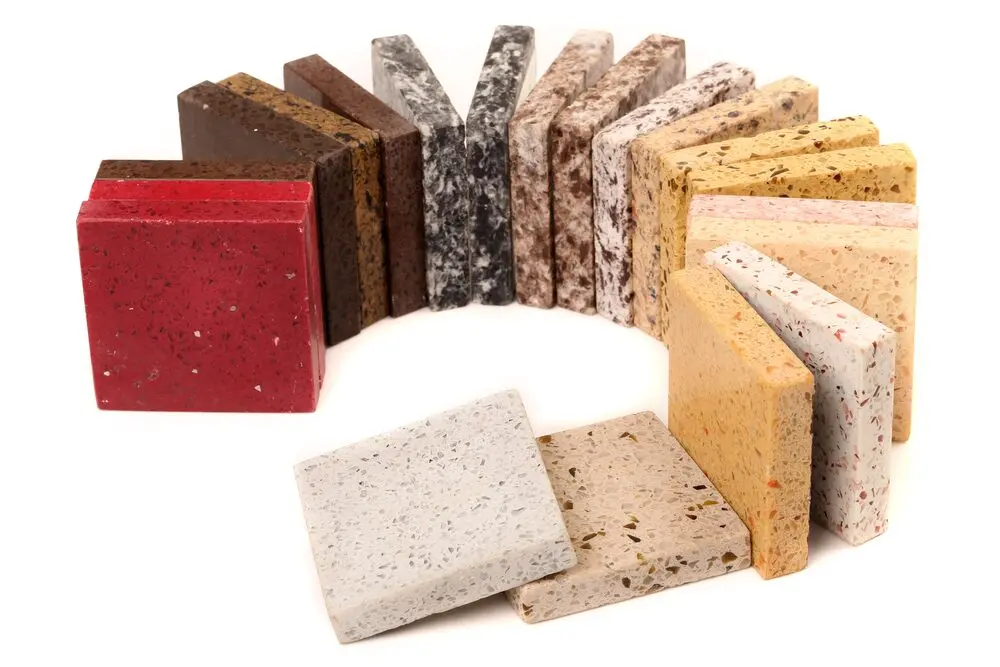
Which materials should I choose for my kitchen countertop or worktop?
28 December 2018
Contact Us
Boisbriand
654 Curé-Boivin
Boisbriand, Quebec
J7G 2A7
Monday to Friday: 9 AM to 5 PM
Saturday: 9 AM to 5 PM
Phone: +1 450-419-5111
Email: [email protected]
Saint-Laurent
3850 Boulevard Côte-Vertu West
Saint-Laurent, Quebec
H4R 1V4
Monday: Closed
Tuesday to Saturday: 9 AM to 5 PM
Phone: +1 514-500-9866
Email: [email protected]

Here’s a question we often get asked! And as always, my answer is that it’s mostly a matter of personal taste. Of course, all the possible materials for making a countertop or worktop have their pros and cons, and it will also depend on how you plan to use it.
So, marble, granite, or quartz countertop? What are the differences between these three materials?
Let’s start by saying that quartz, marble, and granite have in common that they are natural mineral materials, although quartz is enriched with resin.
Quartz and granite are two materials that are extremely resistant to shocks. Even though you technically could cut directly on your countertop or worktop, we still recommend investing in a wooden cutting board. More so than marble, quartz and granite will resist objects you might accidentally drop, and yes, these types of accidents happen in the kitchen. And unlike marble, granite or quartz won’t be affected by lemon or sodas, and you can use common household cleaners to clean them.
Marble, on the other hand, will scratch and be damaged by acidic substances because of the limestone it is made from. Even though the term “kitchen marble” is commonly used, it’s very rarely actual marble in its mineral form!
As we mentioned at the beginning of the article, it all comes down to personal taste. Quartz will undoubtedly have a more modern look, and you’ll find it in a wide range of colors. As for granite, you’ll have to go with the colors provided by nature; you’ll find it in shades of black, anthracite gray, and even lighter tones. Granite can suit both classic and modern kitchens. Marble also offers a broad palette of colors, from cream white to green or blue, and even black or red.
One last thing about quartz before we wrap up this article… You’ve probably heard that quartz has a harder time withstanding heat. This is partially true, although quartz now handles temperatures of 180 to 200 degrees Celsius pretty well. But be aware that you should never leave a hot dish on quartz for too long, as it could leave an unsightly mark.
We hope this has helped you with your decision, and if you need more advice, know that we are always ready to welcome you in our showroom to discover our finest granites, quartz, and beautiful marbles…

